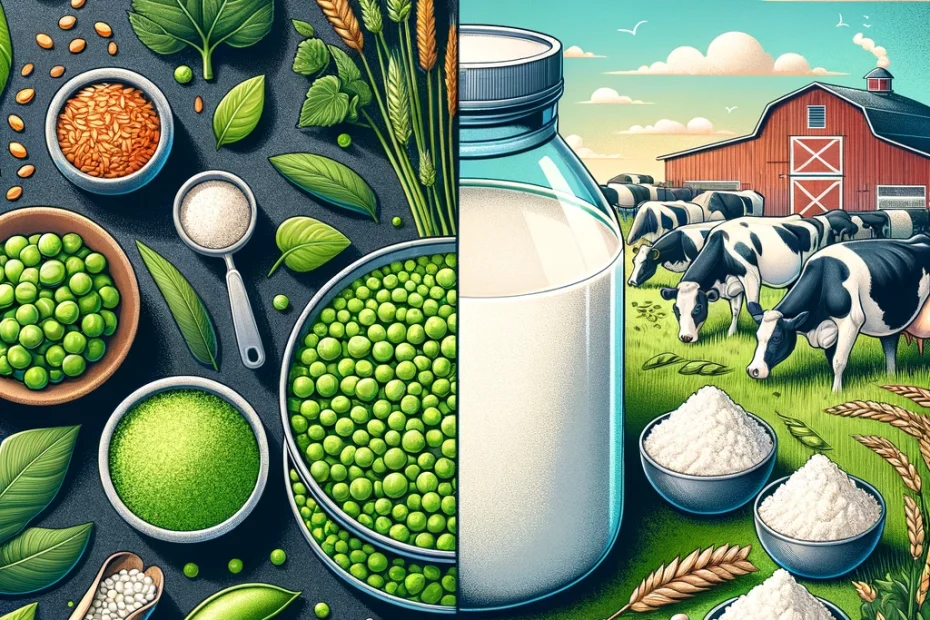In the vast world of fitness and nutrition, protein powders stand out as a staple for many looking to enhance their muscle growth, recovery, and overall health. With a myriad of options available, the choice between whey protein and plant-based protein powders can seem daunting. This guide aims to demystify the two, offering insights into their benefits, differences, and how to choose the best option for your dietary needs and fitness goals.
Whey Protein
Whey protein, a byproduct of cheese production, is a complete protein containing all nine essential amino acids necessary for the human body. It’s highly favored in the fitness community for its high biological value and fast absorption rate, making it an ideal post-workout supplement for muscle recovery and growth.
Benefits of Whey Protein:
- Muscle Growth and Repair: Whey protein is rich in leucine, an amino acid that is crucial for protein synthesis and muscle repair.
- Weight Loss Support: Studies suggest that whey protein can help reduce hunger, making it a useful supplement for those looking to lose weight without sacrificing muscle mass.
- Enhanced Recovery: The rapid absorption of whey protein aids in quickly repairing muscles after strenuous workouts.
Considerations:
- Allergies and Intolerances: Individuals with lactose intolerance or dairy allergies may experience digestive issues with whey protein.
- Environmental Impact: Dairy farming has a significant environmental footprint, raising concerns about the sustainability of whey protein production.
Plant-Based Protein
Plant-based protein powders are derived from sources such as peas, rice, hemp, and soy. They cater to vegans, vegetarians, and those with dairy allergies or lactose intolerance. While most plant-based proteins are not complete, many blends offer a complete amino acid profile by combining different plant sources.
Benefits of Plant-Based Protein:
- Allergy-Friendly: A suitable option for those with dairy allergies or lactose intolerance.
- Environmental Sustainability: Generally, plant-based proteins have a lower environmental impact compared to animal-based proteins.
- Diverse Nutrient Profile: These proteins often contain additional nutrients such as fiber, vitamins, and minerals.
Considerations:
- Taste and Texture: Some users may find the taste and texture of plant-based proteins less appealing than whey protein.
- Protein Quality: While advances have been made, some plant-based proteins may have a lower biological value compared to whey, potentially affecting their efficiency in muscle repair and growth.
Choosing the Right Protein Powder
The choice between whey and plant-based protein should be influenced by your dietary preferences, allergies, fitness goals, and environmental considerations. Here are some tips to guide your decision:
- Dietary Restrictions: Opt for plant-based proteins if you are vegan, vegetarian, or have dairy allergies.
- Fitness Goals: If muscle growth and fast recovery are your primary goals, whey protein may offer more benefits due to its high leucine content and rapid absorption.
- Environmental Concerns: If sustainability is a key factor for you, plant-based proteins are more eco-friendly.
- Taste Preferences: Sampling different brands and flavors can help you find a protein powder that you enjoy consuming regularly.
Conclusion
Both whey and plant-based protein powders offer distinct advantages and can be a valuable part of a balanced diet and fitness regimen. Ultimately, the best choice depends on individual needs, preferences, and values. By considering your health goals and dietary requirements, you can select a protein powder that supports your journey towards achieving a healthier, more balanced lifestyle.
